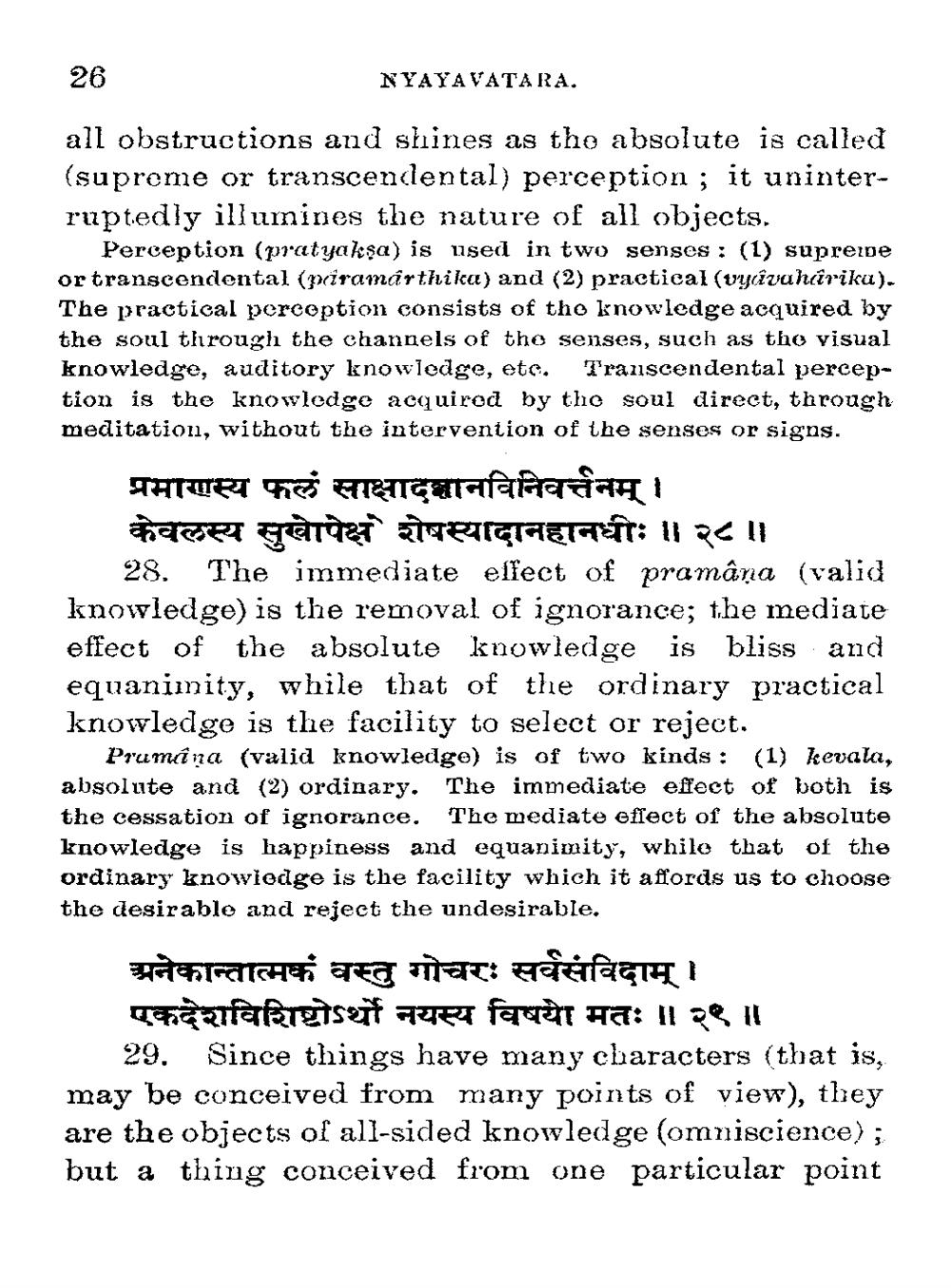________________
26
all obstructions and shines as the absolute is called (supreme or transcendental) perception; it uninterruptedly illumines the nature of all objects.
Perception (pratyakṣa) is used in two senses: (1) supreme or transcendental (páramárthika) and (2) practical (vyāvahārika). The practical perception consists of the knowledge acquired by the soul through the channels of the senses, such as the visual knowledge, auditory knowledge, etc. Transcendental perception is the knowledge acquired by the soul direct, through meditation, without the intervention of the senses or signs.
NYAYAVATARA.
प्रमाणस्य फलं साक्षादशानविनिवर्त्तनम् ।
केवलस्य सुखापेक्ष शेषस्यादानहानधीः ॥ २८ ॥
28. The immediate effect of pramâna (valid knowledge) is the removal of ignorance; the mediate effect of the absolute knowledge is bliss and equanimity, while that of the ordinary practical knowledge is the facility to select or reject.
Prumana (valid knowledge) is of two kinds : (1) kevala, absolute and (2) ordinary. The immediate effect of both is the cessation of ignorance. The mediate effect of the absolute knowledge is happiness and equanimity, while that of the ordinary knowledge is the facility which it affords us to choose the desirable and reject the undesirable.
अनेकान्तात्मकं वस्तु गोचरः सर्वसंविदाम् । एकदेशविशिष्टोऽर्थो नयस्य विषया मतः ॥ २९ ॥
29. Since things have many characters (that is, may be conceived from many points of view), they are the objects of all-sided knowledge (omniscience); but a thing conceived from one particular point




